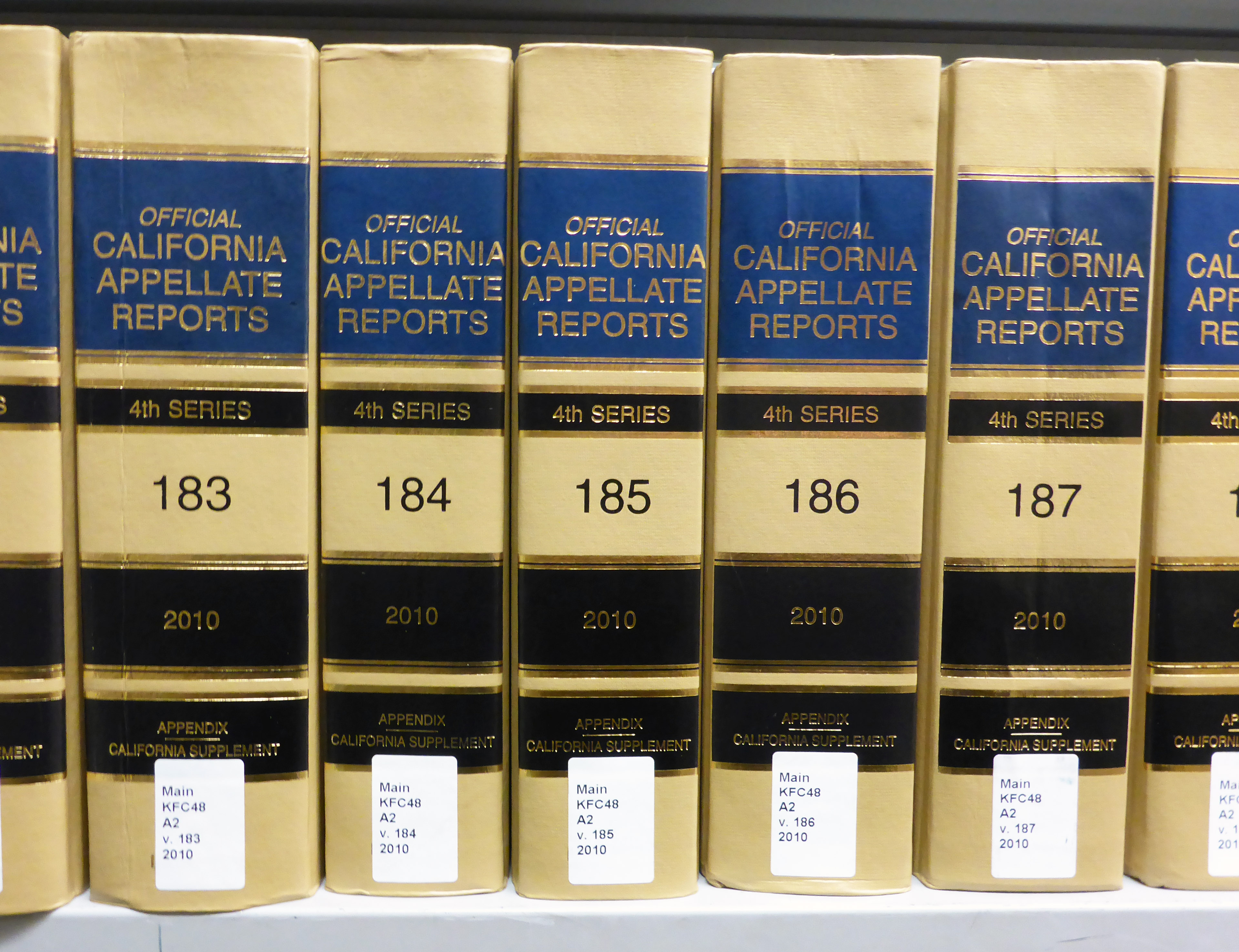|
Riley V. California
''Riley v. California'', 573 U.S. 373 (2014),''Riley v. California''573 U.S. 373(2014). is a landmark United States Supreme Court case in which the court ruled that the warrantless search and seizure of the digital contents of a cell phone during an arrest is unconstitutional under the Fourth Amendment. The case arose from inconsistent rulings on cell phone searches from various state and federal courts. The Fourth, Fifth, and Seventh Circuits had ruled that police officers can search cell phones incident to arrest under various standards. That rule was also accepted by the Supreme Courts of Georgia, Massachusetts, and California. On the other hand, the First Circuit and the Supreme Courts of Florida and Ohio disagreed and ruled that police needed a warrant to search the information on a suspect's phone. California had also proposed a state statute requiring police to obtain a warrant before searching the contents of "portable electronic devices". Background Suprem ... [...More Info...] [...Related Items...] OR: [Wikipedia] [Google] [Baidu] |
Certiorari
In law, ''certiorari'' is a court process to seek judicial review of a decision of a lower court or government agency. ''Certiorari'' comes from the name of an English prerogative writ, issued by a superior court to direct that the record of the lower court be sent to the superior court for review. The term is Latin for "to be made certain", and comes from the opening line of such writs, which traditionally began with the Latin words "''Certiorari volumus''..." ("We wish to be made certain..."). Derived from the English common law, ''certiorari'' is prevalent in countries utilising, or influenced by, the common law''.'' It has evolved in the legal system of each nation, as court decisions and statutory amendments are made. In modern law, ''certiorari'' is recognized in many jurisdictions, including England and Wales (now called a "quashing order"), Canada, India, Ireland, the Philippines and the United States. With the expansion of administrative law in the 19th an ... [...More Info...] [...Related Items...] OR: [Wikipedia] [Google] [Baidu] |
Search Warrant
A search warrant is a court order that a magistrate or judge issues to authorize law enforcement officers to conduct a search of a person, location, or vehicle for evidence of a crime and to confiscate any evidence they find. In most countries, a search warrant cannot be issued in aid of civil process. Jurisdictions that respect the rule of law and a right to privacy constrain police powers, and typically require search warrants or an equivalent procedure for searches police conducted in the course of a criminal investigation. The laws usually make an exception for hot pursuit: a police officer following a criminal who has fled the scene of a crime has the right to enter a property where the criminal has sought shelter. The necessity for a search warrant and its abilities vary from country to country. In certain authoritarian nations, police officers may be allowed to search individuals and property without having to obtain court permission or provide justification for th ... [...More Info...] [...Related Items...] OR: [Wikipedia] [Google] [Baidu] |
Smartphone
A smartphone is a portable computer device that combines mobile telephone and computing functions into one unit. They are distinguished from feature phones by their stronger hardware capabilities and extensive mobile operating systems, which facilitate wider software, internet (including web browsing over mobile broadband), and multimedia functionality (including music, video, cameras, and gaming), alongside core phone functions such as voice calls and text messaging. Smartphones typically contain a number of metal–oxide–semiconductor (MOS) integrated circuit (IC) chips, include various sensors that can be leveraged by pre-included and third-party software (such as a magnetometer, proximity sensors, barometer, gyroscope, accelerometer and more), and support wireless communications protocols (such as Bluetooth, Wi-Fi, or satellite navigation). Early smartphones were marketed primarily towards the enterprise market, attempting to bridge the functionality of ... [...More Info...] [...Related Items...] OR: [Wikipedia] [Google] [Baidu] |
Clamshell Design
The flip phone or clamshell is a form factor of a mobile phone or other device which is in two or more sections that fold via a hinge. If the hinge is on a long edge the device is more likely to be called clamshell than flip phone (e.g., Nokia Communicators). Generally speaking, the interface components such as keys and display are kept inside the closed clamshell, protecting them from damage and unintentional use while also making the device shorter or narrower so it is easier to carry around. In many cases, opening the clamshell offers more surface area than when the device is closed, allowing interface components to be larger and easier to use than on devices which do not flip open. A disadvantage of the clamshell design is the connecting hinge, which is prone to fatigue or failure. Etymology The clamshell form factor is most closely associated with the cell phone market, as Motorola used to have a trademark on the term "flip phone", but the term "flip phone" has becom ... [...More Info...] [...Related Items...] OR: [Wikipedia] [Google] [Baidu] |
Samuel Alito
Samuel Anthony Alito Jr. ( ; born April 1, 1950) is an American lawyer and jurist who serves as an associate justice of the Supreme Court of the United States. He was nominated by President George W. Bush on October 31, 2005, and has served since January 31, 2006. He is the second Italian American justice to serve on the U.S. Supreme Court—after Antonin Scalia—and the eleventh Catholic. Raised in Hamilton Township, New Jersey, and educated at Princeton University and Yale Law School, Alito served as the U.S. Attorney for the District of New Jersey and a judge on the U.S. Court of Appeals for the Third Circuit (Philadelphia, Pennsylvania) before joining the Supreme Court. He is the 110th justice. In 2013, Alito was considered "one of the most conservative justices on the Court". Granick, Jennifer and Sprigman, Christopher (June 27, 2013"The Criminal N.S.A.", ''The New York Times'' He has described himself as a "practical originalist". Alito's majority opinions ... [...More Info...] [...Related Items...] OR: [Wikipedia] [Google] [Baidu] |
Data Encryption
In cryptography, encryption is the process of encoding information. This process converts the original representation of the information, known as plaintext, into an alternative form known as ciphertext. Ideally, only authorized parties can decipher a ciphertext back to plaintext and access the original information. Encryption does not itself prevent interference but denies the intelligible content to a would-be interceptor. For technical reasons, an encryption scheme usually uses a pseudo-random encryption key generated by an algorithm. It is possible to decrypt the message without possessing the key but, for a well-designed encryption scheme, considerable computational resources and skills are required. An authorized recipient can easily decrypt the message with the key provided by the originator to recipients but not to unauthorized users. Historically, various forms of encryption have been used to aid in cryptography. Early encryption techniques were often used in militar ... [...More Info...] [...Related Items...] OR: [Wikipedia] [Google] [Baidu] |
John Roberts
John Glover Roberts Jr. (born January 27, 1955) is an American lawyer and jurist who has served as the 17th chief justice of the United States since 2005. Roberts has authored the majority opinion in several landmark cases, including '' National Federation of Independent Business v. Sebelius,'' ''Shelby County v. Holder'', and ''Riley v. California''. He has been described as having a conservative judicial philosophy but, above all, is an institutionalist. He has shown a willingness to work with the Supreme Court's liberal bloc, and after the retirement of Anthony Kennedy in 2018, he has been regarded as the primary swing vote on the Court. However, Roberts is no longer regarded as the Court's median vote following the replacement of Ruth Bader Ginsburg by Amy Coney Barrett in 2020. Roberts grew up in northwestern Indiana and was educated in a series of Catholic schools. He studied history at Harvard University and then attended Harvard Law School, where he was mana ... [...More Info...] [...Related Items...] OR: [Wikipedia] [Google] [Baidu] |
Jeffrey L
Jeffrey may refer to: * Jeffrey (name), including a list of people with the name * ''Jeffrey'' (1995 film), a 1995 film by Paul Rudnick, based on Rudnick's play of the same name * ''Jeffrey'' (2016 film), a 2016 Dominican Republic documentary film * Jeffrey's, Newfoundland and Labrador, Canada * Jeffrey City, Wyoming, United States *Jeffrey Street, Sydney, Australia *Jeffrey's sketch, a sketch on American TV show ''Saturday Night Live'' *''Nurse Jeffrey'', a spin-off miniseries from the American medical drama series ''House, MD'' * Jeffreys Bay, Western Cape, South Africa People with the surname * Alexander Jeffrey (1806–1874), Scottish solicitor and historian *Charles Jeffrey (footballer) (died 1915), Scottish footballer *E. C. Jeffrey (1866–1952), Canadian-American botanist *Grant Jeffrey (1948–2012), Canadian writer * Hester C. Jeffrey (1842–1934), American activist, suffragist and community organizer *Richard Jeffrey (1926–2002), American philosopher, logician, and pr ... [...More Info...] [...Related Items...] OR: [Wikipedia] [Google] [Baidu] |
Stanford University
Stanford University, officially Leland Stanford Junior University, is a Private university, private research university in Stanford, California. The campus occupies , among the largest in the United States, and enrolls over 17,000 students. Stanford is considered among the most prestigious universities in the world. Stanford was founded in 1885 by Leland Stanford, Leland and Jane Stanford in memory of their only child, Leland Stanford Jr., who had died of typhoid fever at age 15 the previous year. Leland Stanford was a List of United States senators from California, U.S. senator and former List of governors of California, governor of California who made his fortune as a Big Four (Central Pacific Railroad), railroad tycoon. The school admitted its first students on October 1, 1891, as a Mixed-sex education, coeducational and non-denominational institution. Stanford University struggled financially after the death of Leland Stanford in 1893 and again after much of the campus was ... [...More Info...] [...Related Items...] OR: [Wikipedia] [Google] [Baidu] |
California Courts Of Appeal
The California Courts of Appeal are the state intermediate appellate courts in the U.S. state of California. The state is geographically divided along county lines into six appellate districts.California Government Code Sections 69100-69107 The Courts of Appeal form the largest state-level intermediate appellate court system in the United States, with 106 justices. Jurisdiction and responsibility  The decisions of the Courts of Appeal are binding on the
The decisions of the Courts of Appeal are binding on the [...More Info...] [...Related Items...] OR: [Wikipedia] [Google] [Baidu] |
San Diego Police Department
The San Diego Police Department (SDPD) is the primary law enforcement agency for the city of San Diego, California. The department was officially established on May 16, 1889. History Prior to the establishment of the San Diego Police Department, law enforcement services were provided by the San Diego City Marshal beginning in 1850. The first City Marshal, Agoston Haraszthy, appointed Richard Freeman a marshal, making Freeman the first African American lawman in California. In 1852, due to lack of willing individuals to take up the position, the City Marshal disbanded. In 1885 the office of City Marshal was reestablished, and in 1889, with a new city charter, the police department was established. All but one police officer at the time of the establishment were White, except for one Hispanic sergeant. The sixth police chief, Edward Beshyhead, also founded the ''San Diego Union'', a predecessor to the current ''San Diego Union-Tribune''. In 1939, the department moved into ... [...More Info...] [...Related Items...] OR: [Wikipedia] [Google] [Baidu] |




